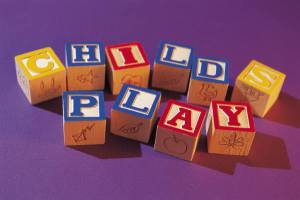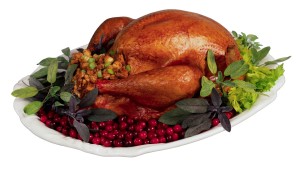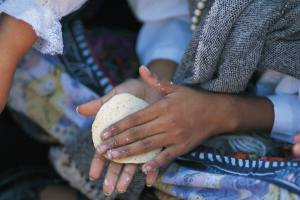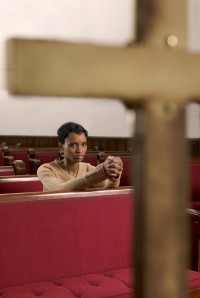God created us with a thirst for knowledge. He also designed the learning process so that we build our knowledge brick by brick, laying a foundation, then building on top of it. We do that by collecting information, creating theories and testing them, then cataloging the results. Even our failures teach us important lessons about how life works.
Picture a child playing with blocks. A baby will hold them, taste them and bang them
 together to understand what they are. As he grows, he applies what he learned about their size and shape stacking one on top of another. First, he stacks two, then three precariously upwards. When they fall, he stacks them again and again, eventually learning to put them on more straight so they don't topple. Eventually he learns to build them pyramid style so they create a wall. And so on.
together to understand what they are. As he grows, he applies what he learned about their size and shape stacking one on top of another. First, he stacks two, then three precariously upwards. When they fall, he stacks them again and again, eventually learning to put them on more straight so they don't topple. Eventually he learns to build them pyramid style so they create a wall. And so on.Learning to trust God employs that same process of gathering knowledge and applying it. After years of slavery, the Israelites were much like infants, needing to learn trust from ground zero.
God helped them to "discover" him with their senses -
- To see his power through the plagues and watching the Lord form walls of water on either side of a path at the Red Sea;
- To hear the water come crashing down on their enemies
- To feel the dry land beneath their feet as they crossed the sea, to feel the cooling effects of the cloud by day and the warmth of the fire by night,
- To taste his power as they drank the once-bitter waters at Marah and the fresh water at Elim.
There's no possible way to gather enough for all of them to eat. With all they've seen, felt, heard and tasted so far, can they build on that knowledge and trust God to provide for their needs?
Then Moses told Aaron, “Say to the entire Israelite community, ‘Come before the Lord, for he has heard your grumbling.’”
While Aaron was speaking to the whole Israelite community, they looked toward the desert, and there was the glory of the Lord appearing in the cloud.
The Lord said to Moses, “I have heard the grumbling of the Israelites. Tell them, ‘At twilight you will eat meat, and in the morning you will be filled with bread. Then you will know that I am the Lord your God.’”
That evening quail came and covered the camp, and in the morning there was a layer of dew around the camp. When the dew was gone, thin flakes like frost on the ground appeared on the desert floor. When the Israelites saw it, they said to each other, “What is it?” For they did not know what it was. Exodus 16:9-13 NIV.
Notice how the Lord built their trust? He showed them his glory so they would recognize that he was the one providing for them. Then He sent something they knew. Flocks of quail inundated the camp that evening. The people wanted meat for their pots and they already had recipes for preparing it. God just made it easy for them to get ahold of as much as they needed.
But the next morning he sent the unknown manna - the new heavenly bread which would give them strength to travel all day if necessary. God was building their trust in baby steps.
Think back over your relationship with the Lord. Are there any experiences that stand out to you where God led you in baby steps to teach you something or to build your faith or trust?
If you'd like to share, I'd love to hear about your experiences! Feel free to leave a comment below.
Blessings!
Bonnie







